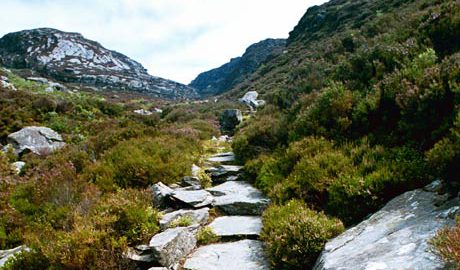The Romans were curious about the world. Conquered lands were not only a source of raw materials, food or cheap labor. Information about new conquered territories was evidence of how far the authority of the Roman Empire reach. The victorious leaders came with news of conquered peoples, their customs, and natural curiosities found in the newly seized lands.
The undeniable proof of this approach are the immortal works of Julius Caesar. In the “Gallic War” we find a description of what interesting Caesar noticed in Germania. In the matter of fauna, Caesar makes the following observations:
There is an ox of the shape of a stag, between whose ears a horn rises from the middle of the forehead, higher and straighter than those horns which are known to us. From the top of this, branches, like palms, stretch out a considerable distance. The shape of the female and of the male is the same; the appearance and the size of the horns is the same.
– Julius Caesar, Gallic War, VI.26
It is not entirely clear what kind of “deer” the author had in mind.
There are also elks so‑called. Their shape and dappled skin are like unto goats, but they are somewhat larger in size and have blunted horns. They have legs without nodes or joints, and they do not lie down to sleep, nor, if any shock has causes them to fall, can they raise or uplift themselves. Trees serve them as couches; they bear against them, and thus, leaning but a little, take their rest. When hunters mark by their tracks the spot to which they are wont to betake themselves, they either undermine all the trees in that spot at the roots or cut them so far through as to leave them just standing to outward appearance. When the elk lean against them after their fashion, their weight bears down the weakened trees and they themselves fall along with them.
A third specie consists of the ure-oxen so‑called. In size these are somewhat smaller than elephants; in appearance, colour, and shape they are as bulls. Great is their strength and great their speed, and they spare neither man nor beast once sighted. These the Germans slay zealously, by taking them in pits; by such work the young men harden themselves and by this kind of hunting train themselves, and those who have slain most of them bring the horns with them to a public place for a testimony thereof, and win great renown. But even if they are caught very young, the animals cannot be tamed or accustomed to human beings. In bulk, shape, and appearance their horns are very different from the horns of our own oxen. The natives collect them zealously and encase the edges with silver, and then at their grandest banquets use them as drinking-cups.
– Julius Caesar, Gallic War, VI.27-28
As for other native species, the description of the bison and aurochs also gives Pliny describing the Scythian country, where live “big bulls with a lion’s mane” called bifontes, and uri, big and fast beasts that “ignorants wrongly call buffaloes”.







